Research
Undergraduate Research Program
As part of Cottey’s health and biomedical sciences program, Dr. Manjira Ghosh-Kumar has an ongoing research project centered around over-the-counter (OTC) drugs such as Ibuprofen and Acetaminophen and the possible pollution they cause in our waterways, natural habitats, and human bodies.
Each year, two to three health and biomedical sciences majors have the opportunity to partner with Dr. Kumar on this research. These students are expected to execute experiments in the lab, and with the oversight of Dr. Kumar, they learn the rigorous process of conducting scientific research. Being able to conduct this caliber of research is a rare opportunity for undergraduate students. In addition, the students also have the opportunity to present their research in state-level and regional conferences.
More information is available about Dr. Kumar’s research at the bottom of the page!
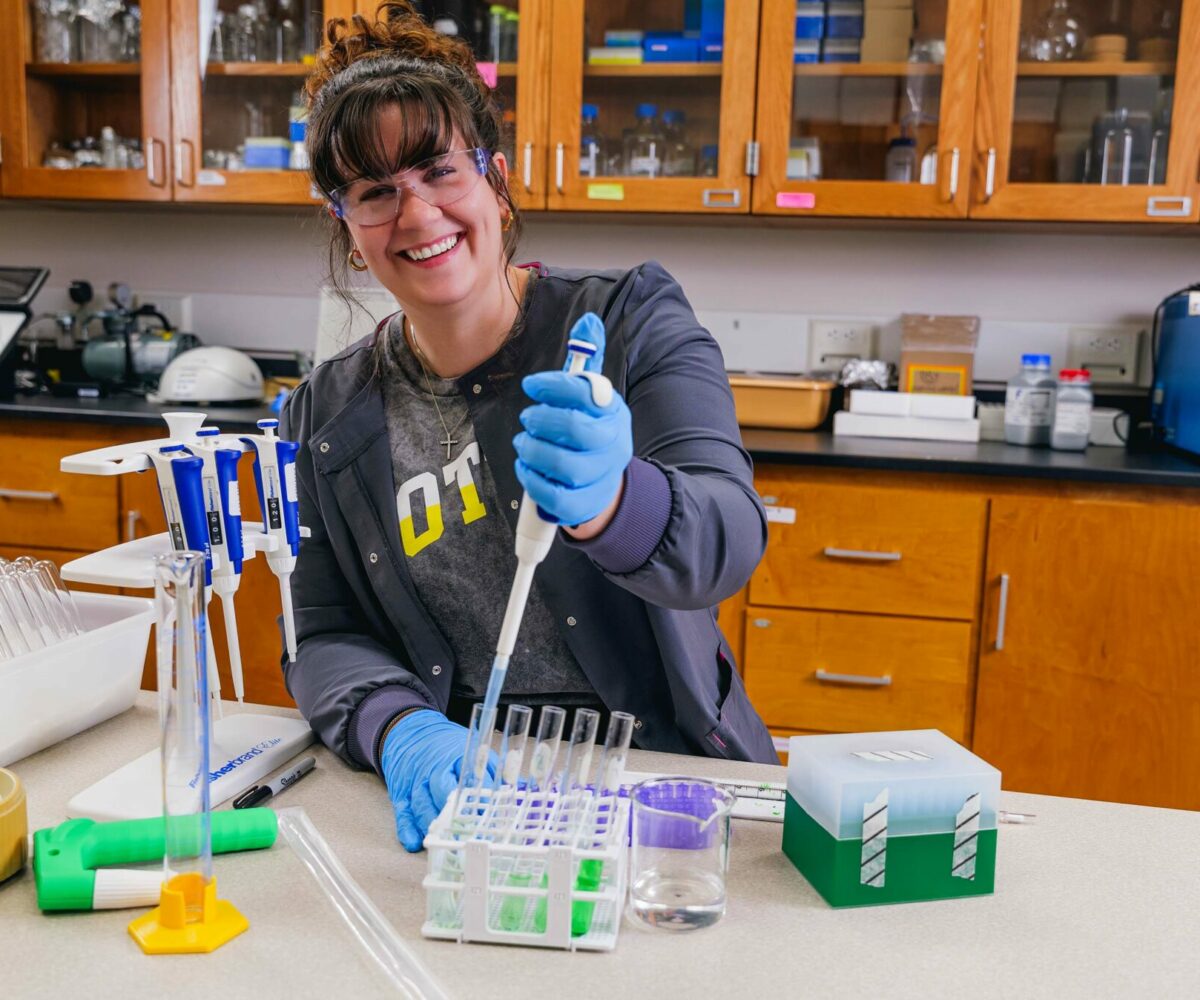
Student Experience
Hi, my name is Karol Knierim, and I had a research internship with Dr. Kumar. That means I had an opportunity to do bench research as an undergrad. Like, that’s unheard of!
Most people don’t get to do bench research until they get to grad school, and I got to do it in undergrad with an incredibly knowledgeable professor who really empowered me to take the lead in my experiments. My name is even on the research we did!
I learned so much from her and it’s something that I’ll always cherish.
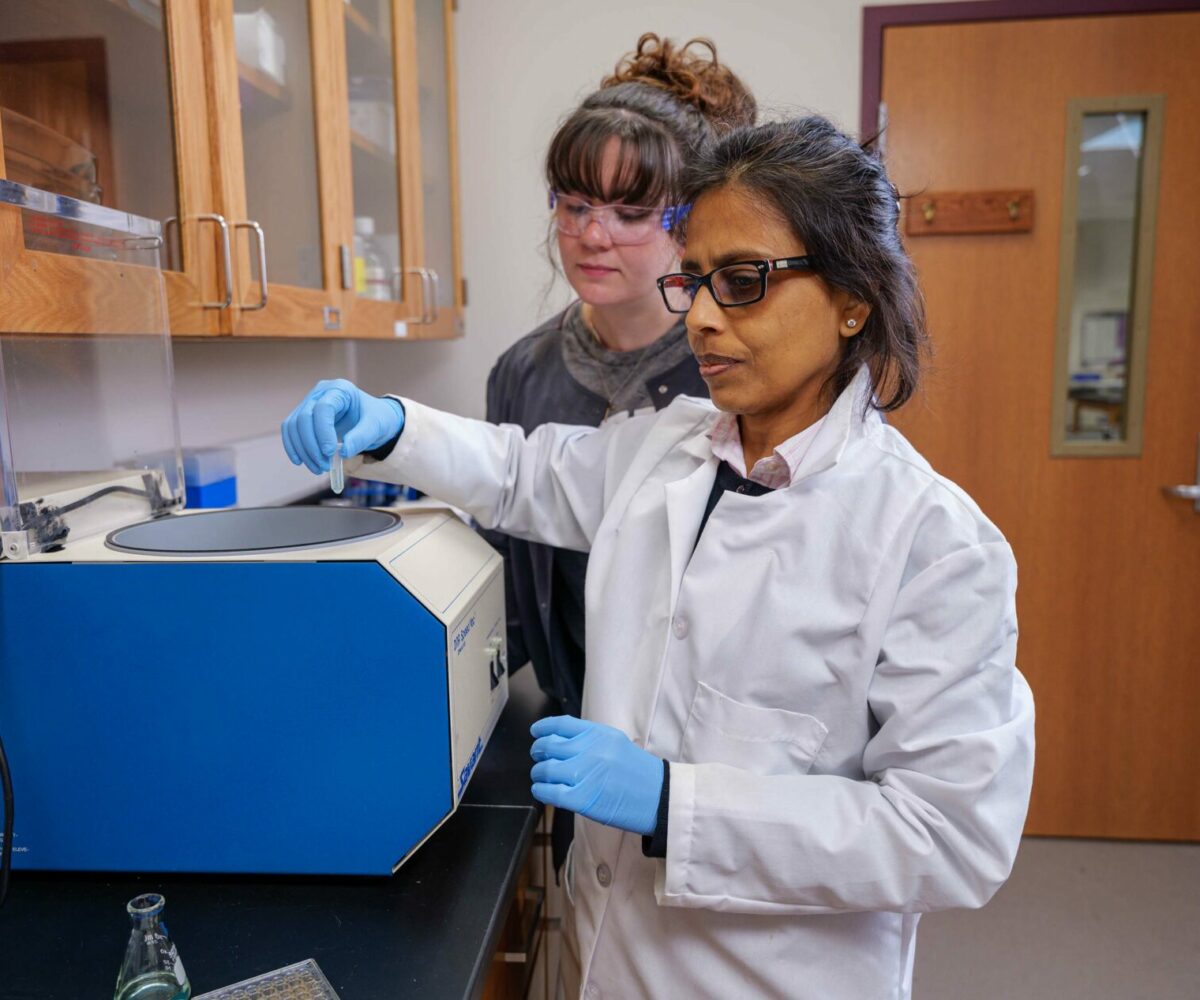
What She Learned
Doing research with Dr. Kumar helped me realize how important the little details are, as a student and a person. Research really teaches you to value being in the moment and dedicate your time to something.
I honestly learned so much from this experience. Not only was I more familiar with the lab, but I was more familiar with the science and the way that everything works together. You quickly see that things can and will go wrong in the lab, and I had to draw on my knowledge to fix those things in real time.
I really can’t stress the attention to detail and perspective you gain from doing research, especially at Cottey.
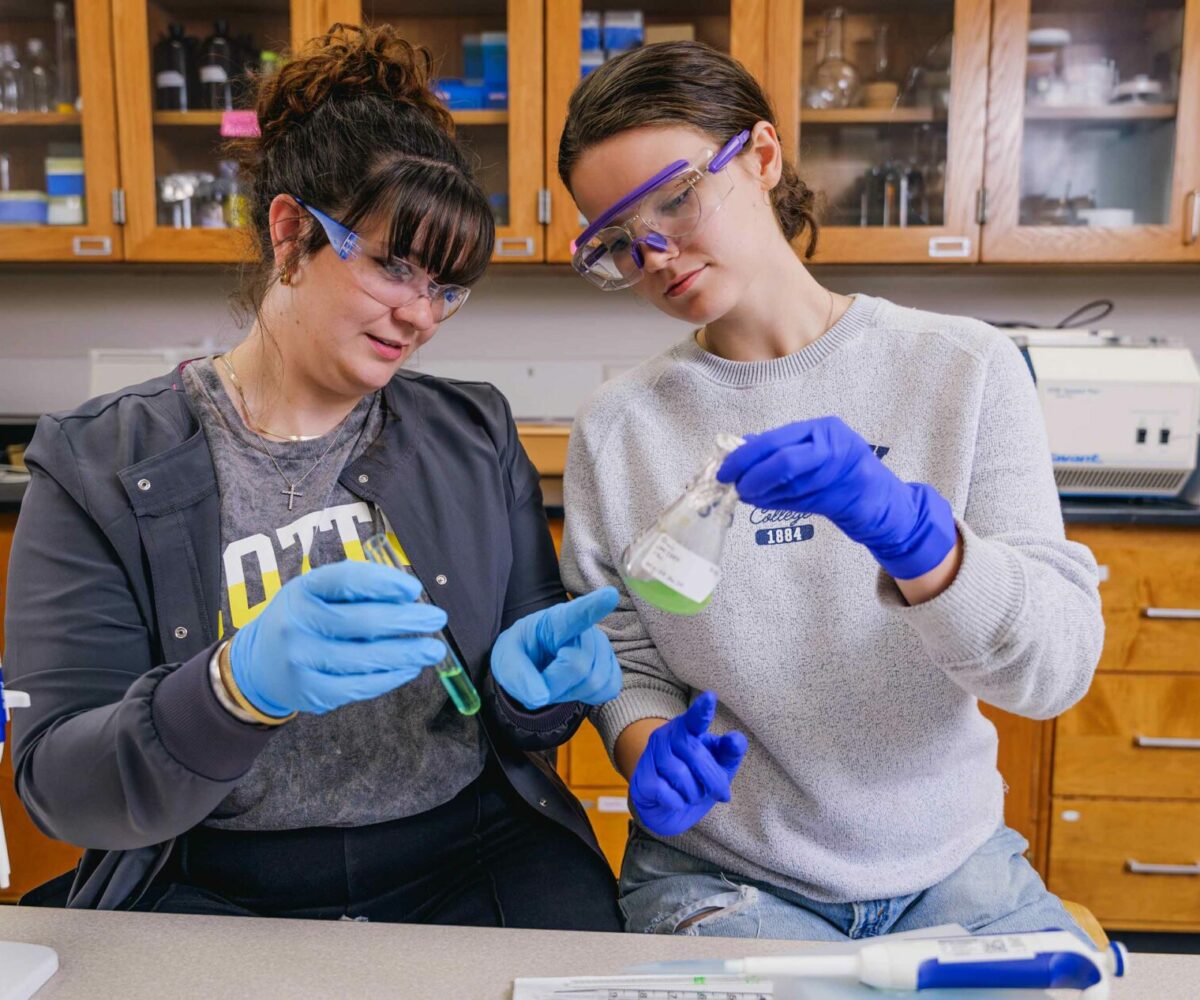
Confidence Boost
I gained so much confidence from doing research with the health and biomedical sciences program at Cottey. It starts with Dr. Kumar treating you like an equal in the lab, which is what she does. She absolutely expects you to conduct your research like you’re the lead scientist.
It gives you a sense of, “I can do this.” By the time the research is over, you feel like, “That lab is my domain. I’m the one that had to make the decisions.”
After I presented my research to the campus, I received quite a few compliments from people. Every time they see me on campus, they’re like, “You’re so smart!”
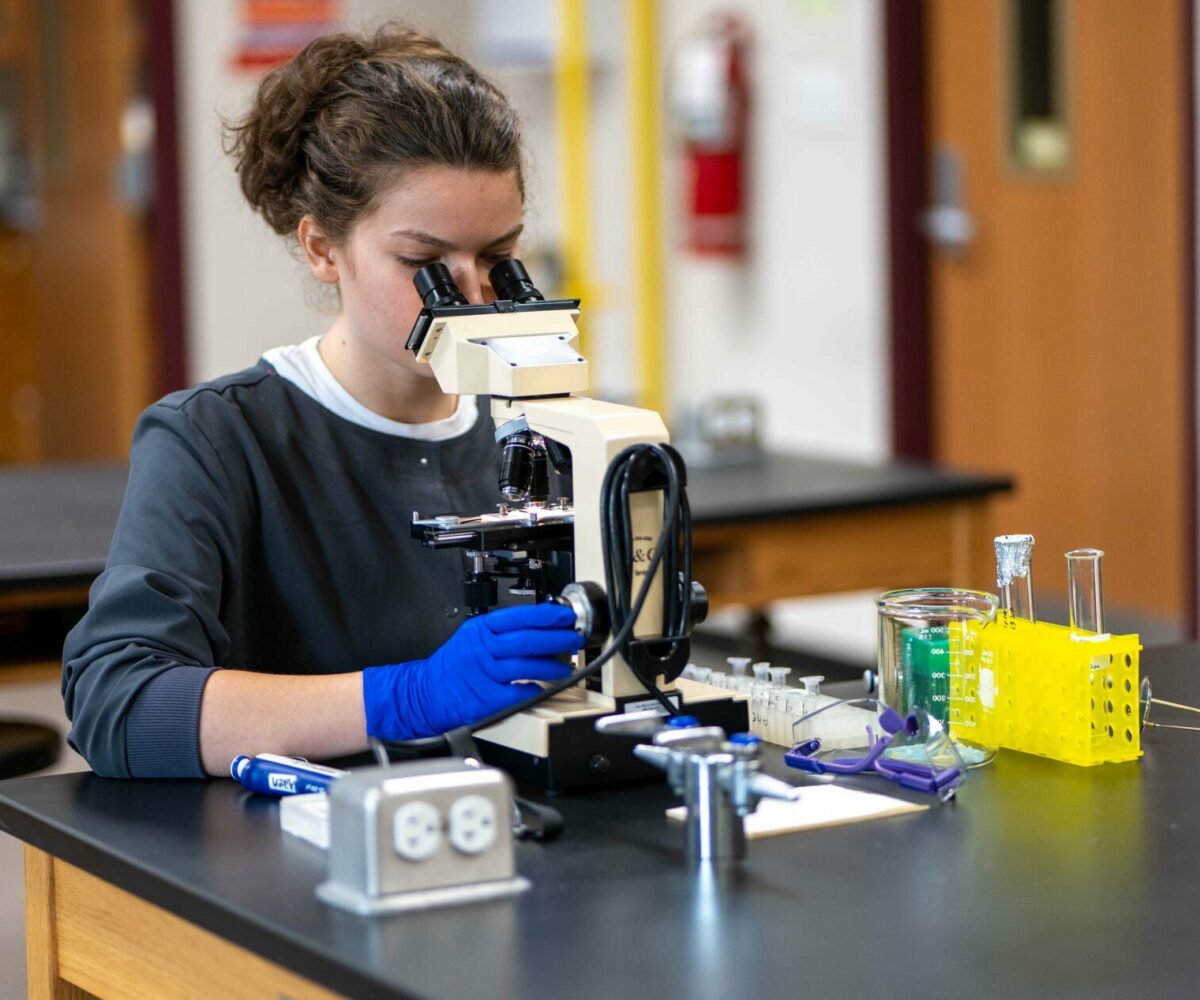
Career Outcomes
Students who participate in Dr. Kumar’s rigorous undergraduate research program often find success after Cottey.
-
Eden Bisetegn ’21
- Graduate student at the University of Oregon in Eugene, Oregon
- Working towards a Master’s in Bioinformatics and Genomics
-
Magdalene Asare ’21
- Quality control chemist at Cambrex Corporation in Charles City, Iowa
-
Tsion Shanko ’21
- Laboratory Research Assistant in Plano, Texas
-
Sara Grana ’24
- Graduate student at Maastricht University in Maastricht, Netherlands
- M.Sc Biobased Materials
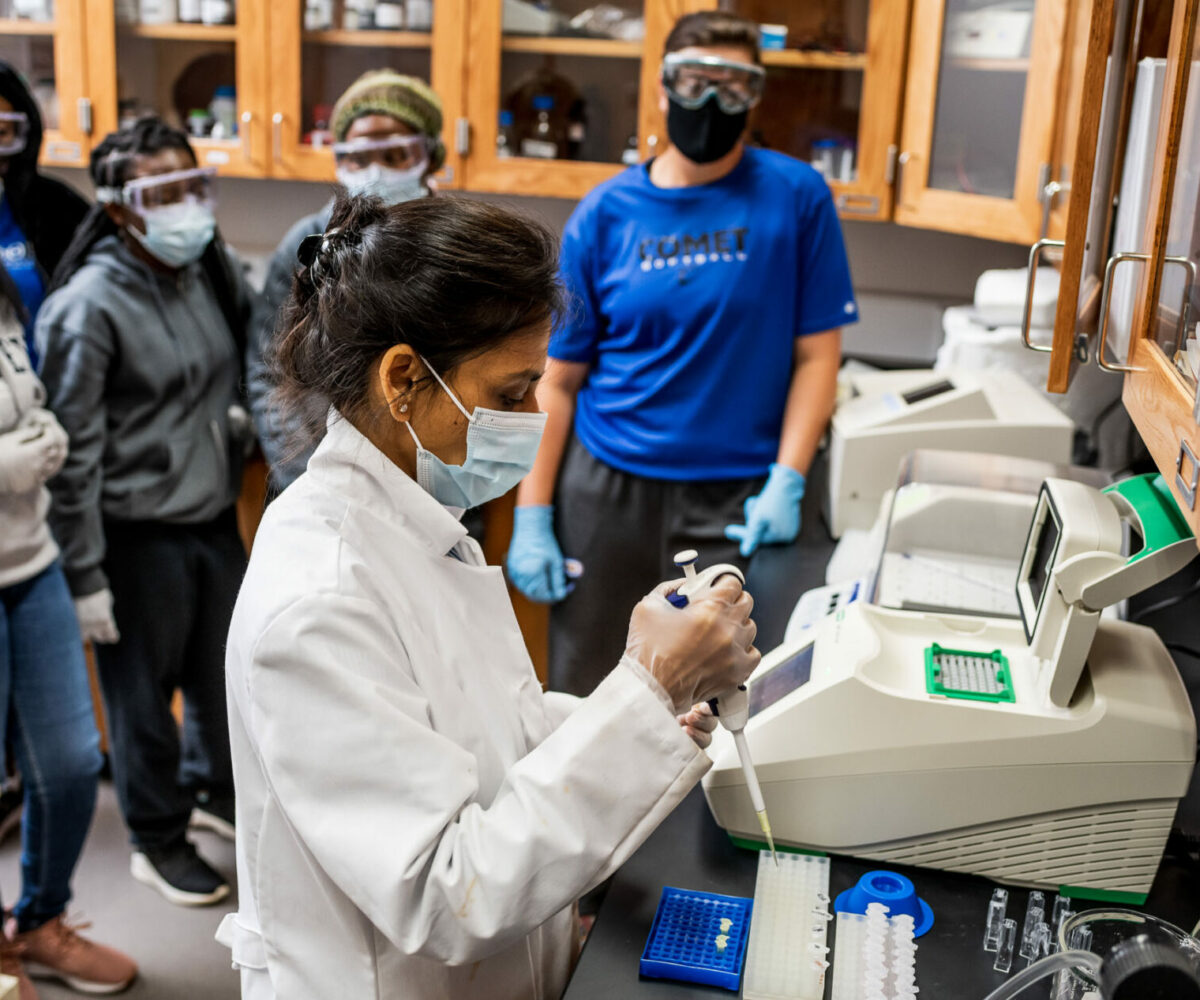
Dr. Kumar’s Research
Dr. Kumar’s research examines the effect of over-the-counter (OTC) drugs such as ibuprofen and acetaminophen on the toxin production of cyanobacteria, which is a common bacteria found in our waterways. Cyanobacteria are responsible for a large amount of the world’s oxygen.
When consumers flush their medication or deposit it in the toilet from bodily elimination, it enters our waterways. Dr. Kumar hypothesizes this contamination is not always filtered out by water treatment plants, and instead goes into our lakes, ponds, and streams.
Dr. Kumar also hypothesizes that waterways carrying OTCs can cause an interaction with cyanobacteria that results in an algal bloom, producing a massive amount of toxins in the water and making it harmful for marine life and humans.
